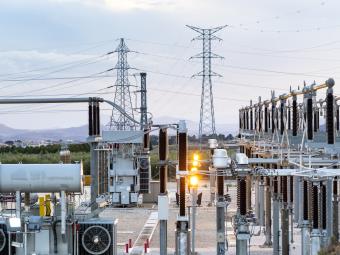
As you look for ways to lower your home energy usage, you may ask, "Why is it important to conserve electricity?" Besides saving money on your energy bills each month, there are several reasons why conserving electricity is a good idea.
What It Means to Conserve Electricity
The idea of conserving electricity means that you should only use it when necessary and avoid wasting it. While you may not notice much of an impact on your day-to-day life when you make these types of changes, the environmental impact of your actions will be much larger.
Why Is It Important to Conserve Electricity?
One of the biggest motivators for conserving electricity in your home is the accumulated savings in energy bills at the end of the year. There are other reasons why conserving electricity is important beyond the impact on your wallet.
Less Use of Fossil Fuels
Electricity obtained from solar or wind power means less use of fossil fuels. Most electricity used in homes comes from the burning of fossil fuels such as oil or coal. These fuels are needed to power the turbines that produce electricity. These resources are not unlimited or renewable; the faster they are used and the more electricity that is consumed, the quicker they will be depleted
Less Pollution
The burning of fossil fuels for producing electricity releases enormous amounts of pollution into the atmosphere. Another damage to the ecosystem is seen in oceans and soil whenever there's an oil spill. These ecological threats reinforce why it is so important to conserve electricity.
Saving Habitats for Plants and Animals
When the negative and harmful side effects of electricity usage are eliminated, there are positive results. For example, the habitats for plants and animals are saved. This is especially important since pollution caused by electricity.
Protect Animals and Marine Wildlife
Reducing the amount of water, air and soil pollution means a reduction in loss of animal and marine animal lives. By reducing the need for fossil fuels and nuclear power, the harmful side effects each creates is significantly reduced.
Safe Drinking Water
If the pollutants created from the use of electricity are reduced, then there are less threats to other resources. This includes the pollutants that find their way into the groundwater and drinking water supply.
Fewer Greenhouse Gases
Acid rain, soot, carbon dioxide, and toxic gases are just a few of the ways electricity production poisons the environment. Even the act of mining coal to be burned is detrimental to the ecosystem.
Less Chance of Radioactive Pollution
As an alternative to burning fossil fuels, much thought and effort have been put into building nuclear reactors. Nuclear energy is produced by splitting unstable uranium atoms in a process known as fission.

Radioactive Waste
This process produces both enormous amounts of heat, which in turn produces electricity, as well as a tremendous amount of radioactive waste products. Conserving electricity and not putting as great a demand on power plants lessens the need for more nuclear power plants.
Disposal of Nuclear Waste
The waste from nuclear plants often encountered problems in the past from how it was disposed, leading to a potentially deadly pollution problem. According to Forbes, there are 21 active storage sites for standard nuclear waste in the United States.
- There are a total of 59 sites no longer used for storage but are monitored and maintained.
- All of these sites are deemed temporary until a permanent storage site can be created.
- Most nuclear plants store the Spent Nuclear Fuel (SNF) on site.
Power Plants and CO2 Emissions
The EIA (Energy Information Administration) states that electric power plants are the largest cause of CO2 emissions. In fact, the EIA states that 33% of the US CO2 emissions that are related to energy production are created by power plants.
Power Plants and Pollutant Waste
Many power plants produce pollutants as a waste product. Coal burning power plants store sludge ash that is a combination of coal ash and water. This hazardous material is stored in ponds designed as retention pools. However, these can burst or be flooded during natural disastrous flooding forcing the material into rivers and streams.
Conserving Electricity in the Home
There are many ways you can conserve electricity in your home. By adding a few simple things, you can do, you can discover new ways to lower your electric bill each month.
- Turn off lights when you leave a room.
- Use less wattage light bulbs when able or 3-way to adjust intensity of light.
- Replacement windows that are energy efficient can lower your monthly electric bills for heating and cooling systems.
- You can reduce the electricity spent running a dryer by placing a dry dowel in the dryer with each load of clothes.
- Reduce electricity to run air conditioners by switching the rotation. Counterclockwise will push cool air down and pull warm air up.
- Eliminate phantom energy but turning off equipment when not in use and unplugging chargers not in use.
Understanding Why It's Important to Conserve Electricity
By taking the time to consider the question, "Why is it important to conserve electricity?" you may find yourself more motivated to do your part. Conserving energy benefits both you and the environment; begin conserving the electricity in your home today and reap the benefits for many years to come.







